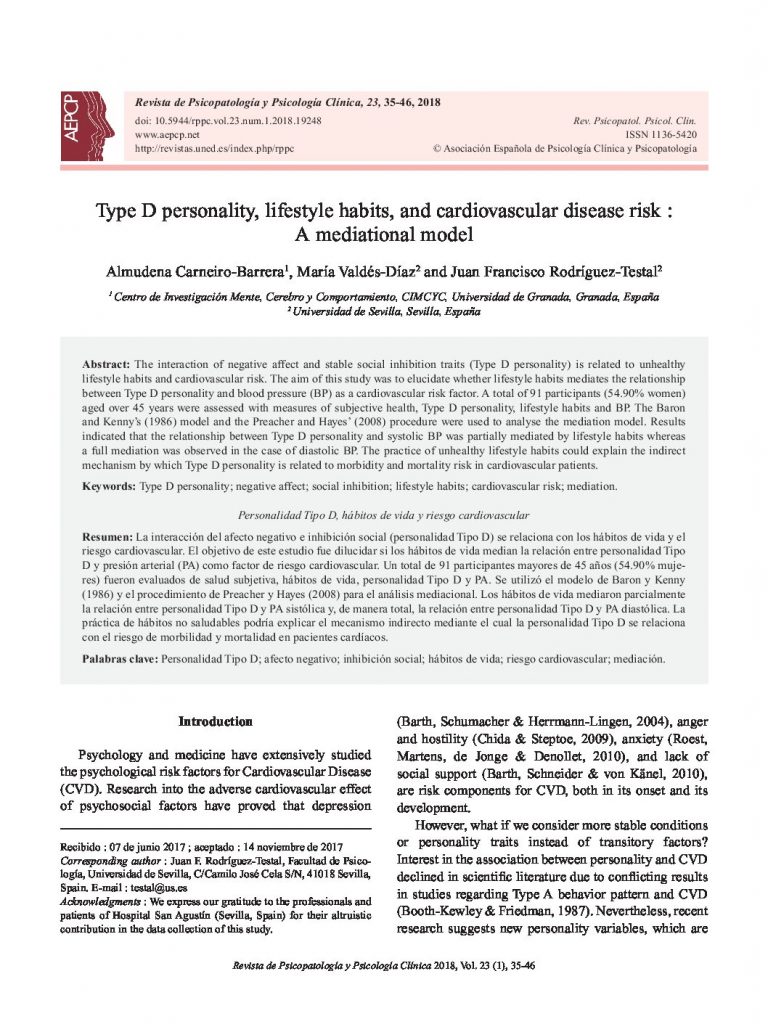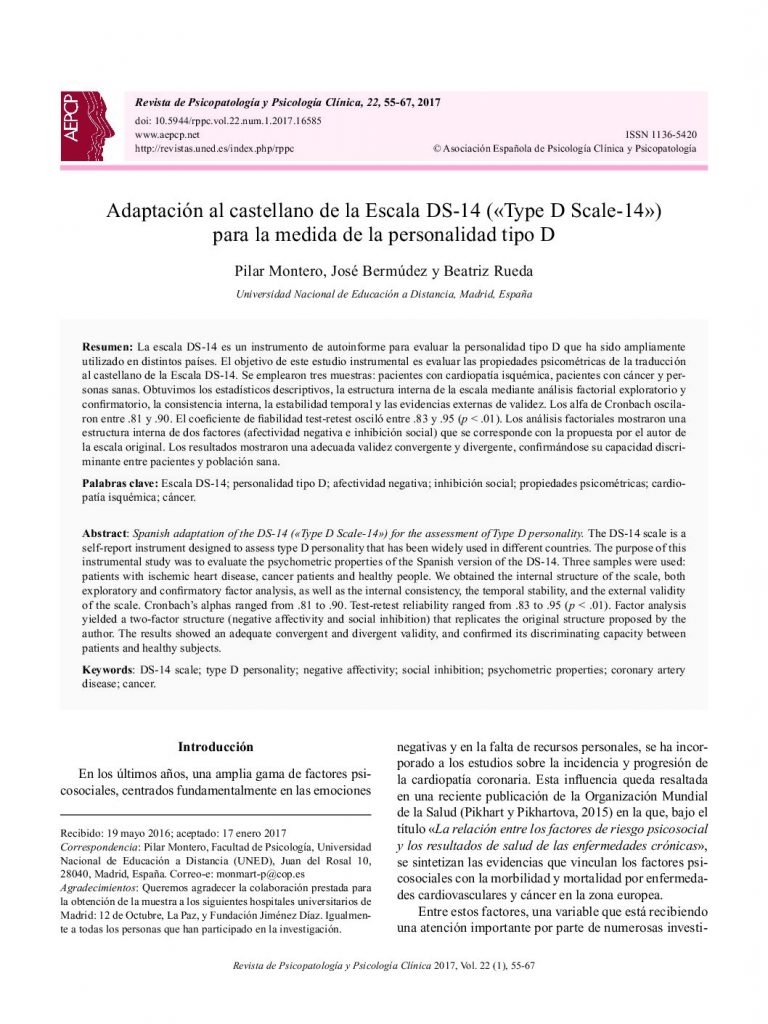Type D personality, lifestyle habits, and cardiovascular disease risk: A mediational model.

- Factores protectores y de riesgo del trastorno de conducta y del trastorno de déficit de atención e hiperactividad. Una revisión sistemática.
- El papel moderador de los estilos parentales en la relación entre la impulsividad y el consumo de alcohol en una muestra de adolescentes españoles.
- Type D personality, lifestyle habits, and cardiovascular disease risk: A mediational model.
- Association of overweight and obesity with psychological problems in school children.
- Adherencia al tratamiento y efectividad de un programa cognitivo conductual sobre la rumiación y expresión de la ira.
- Rasgos de personalidad y recursos psicológicos como predictores del bienestar emocional en adolescentes con y sin formación en escuelas de tauromaquia.
- Jesús Sánchez-Caro (2017). La enferma Teresa de Ávila. Burgos: Grupo Editorial Fonte.
The interaction of negative affect and stable social inhibition traits (Type D personality) is related to unhealthy lifestyle habits and cardiovascular risk. The aim of this study was to elucidate whether lifestyle habits mediate the relationship between Type D personality and blood pressure (BP) as a cardiovascular risk factor. A total of 91 participants (54.90% women) aged over 45 were assessed with measures of subjective health, Type D personality, lifestyle habits and BP. The Baron and Kenny’s (1986) model and the Preacher and Hayes’ (2008) procedure were used to analyse the mediation model. Results indicated that the relationship between Type D personality and systolic BP was partially mediated by lifestyle habits whereas a full mediation was observed in the case of diastolic BP. The practice of unhealthy habits could explain the indirect mechanism by which Type D personality is related to morbidity and mortality risk in cardiovascular patients.
La interacción del afecto negativo e inhibición social (personalidad Tipo D) se relaciona con los hábitos de vida y el riesgo cardiovascular. El objetivo de este estudio fue dilucidar si los hábitos de vida median la relación entre personalidad Tipo D y presión arterial (PA) como factor de riesgo cardiovascular. Un total de 91 participantes mayores de 45 años (54.90% mujeres) fueron evaluados de salud subjetiva, hábitos de vida, personalidad Tipo D y PA. Se utilizó el modelo de Baron y Kenny (1986) y el procedimiento de Preacher y Hayes (2008) para el análisis mediacional. Los hábitos de vida mediaron parcialmente la relación entre personalidad Tipo D y PA sistólica y, de manera total, la relación entre personalidad Tipo D y PA diastólica. La práctica de hábitos no saludables podría explicar el mecanismo indirecto mediante el cual la personalidad Tipo D se relaciona con el riesgo de morbilidad y mortalidad en pacientes cardíacos.




